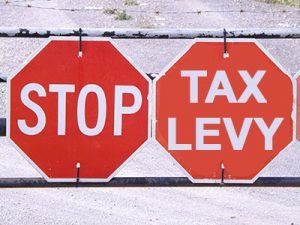What is a Levy and How to Prevent a Levy?
irstaxfighters • February 25, 2018
A levy is a legal involuntary seizure of your assets to satisfy a debt. The IRS can garnish wages, take money from your bank or other financial account, seize and sell your vehicle, real estate, business and other personal property. The most common types of levies are bank levies, wage garnishments, and accounts receivable levies for business owners. Levies do not have to happen.
The IRS sends multiple letters before they levy or involuntarily take money or assets from you. The best way to prevent a levy is to understand what each IRS letter means and to hire a good tax resolution firm. All IRS letters are serious, however, some indicate that a levy is imminent while some are simply notifying you that you have a debt, and to pay the debt or make arrangements. It takes a while before they send serious letters that indicate a levy is imminent.
Each IRS collection letter normally has a code that identifies the letter. The code is normally found in the top right corner of the letter while a few letters have the code at the bottom of the letter. The more serious letters have code CP503, CP504, Letter 1058, LT11, CP 90, and CP 91.
The only exception to this is when your IRS debt is old and these letters have already been sent. In those cases, a seemingly less serious letter can actually be very serious.
A levy does not have to happen. IRS Tax Fighters prevents levies. Call IRS Tax Fighters
today at 888-959-2671.


